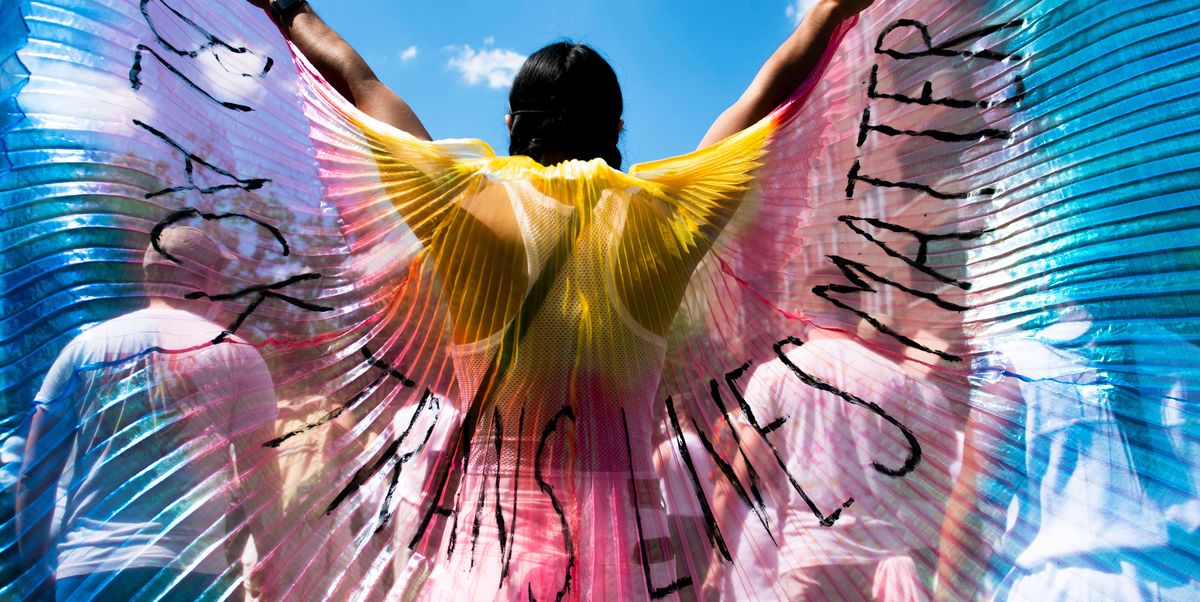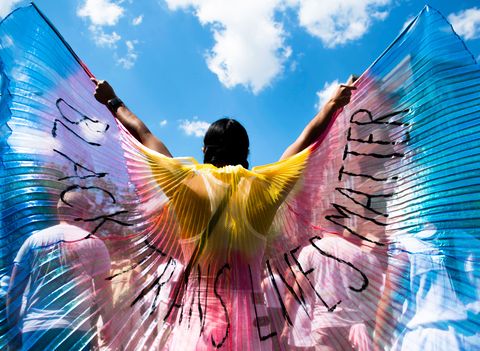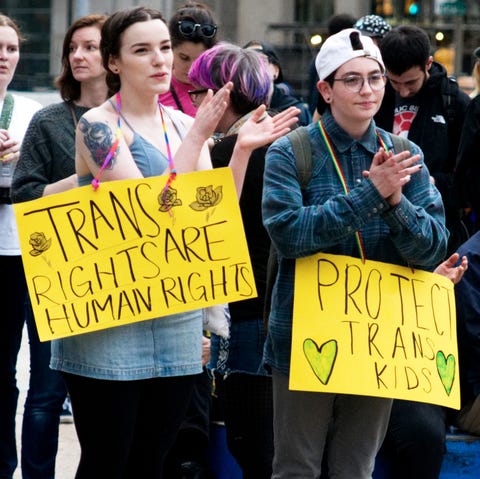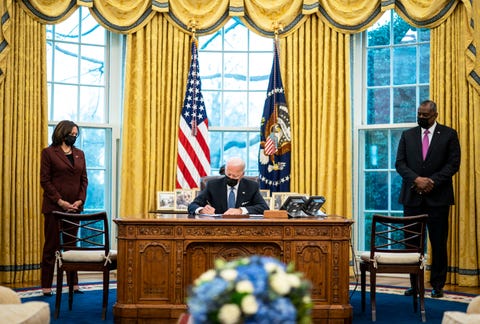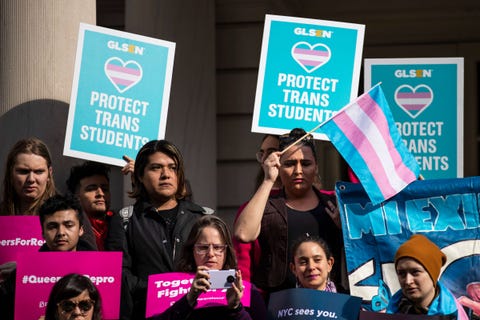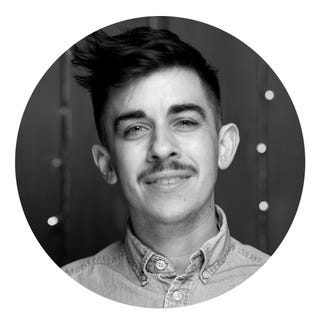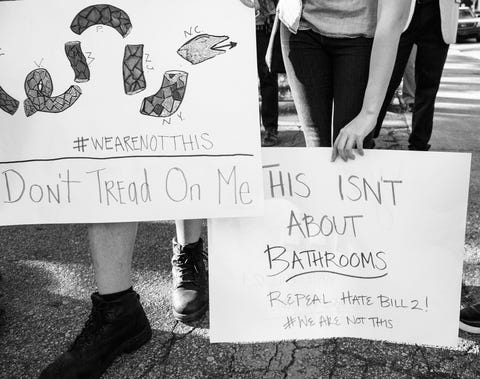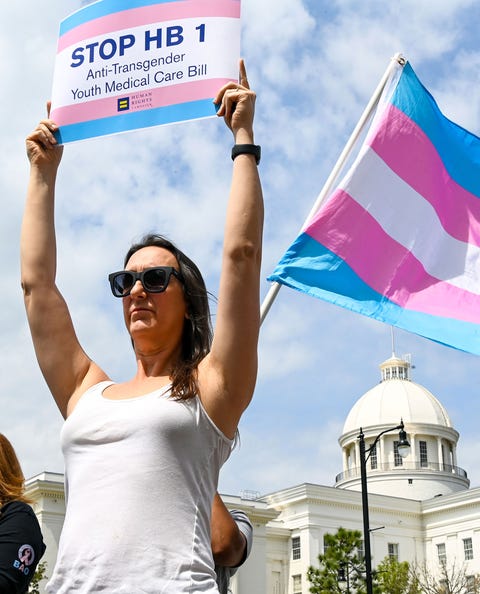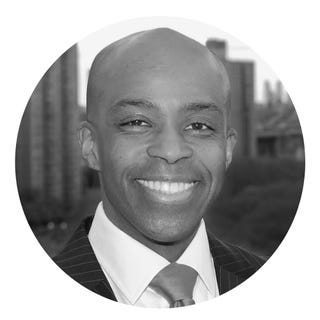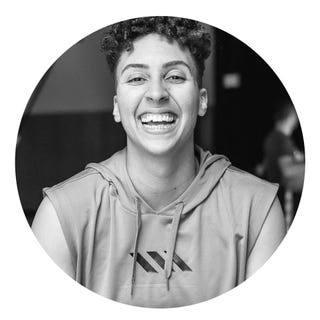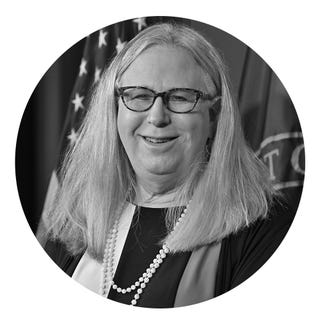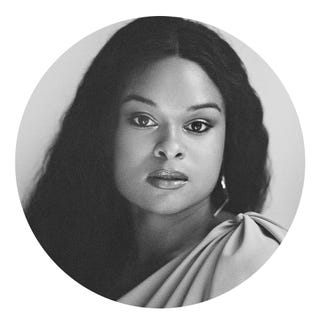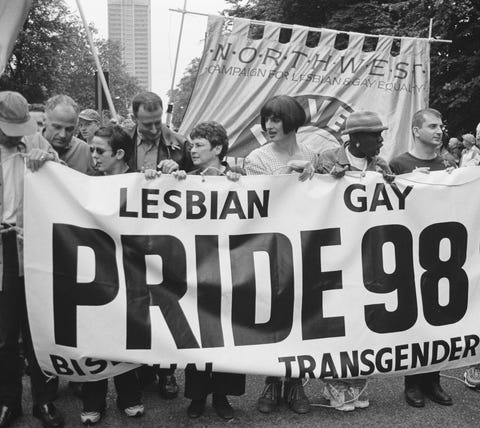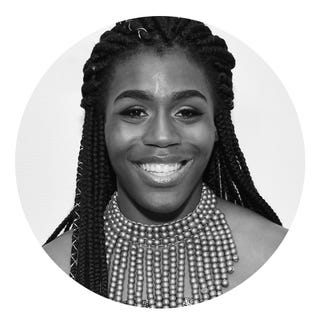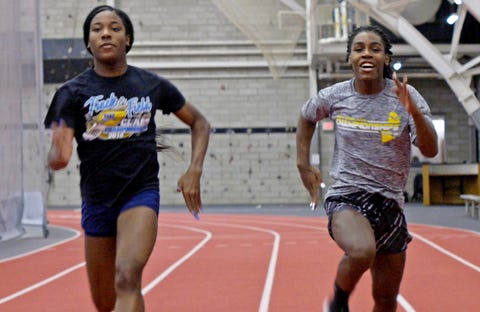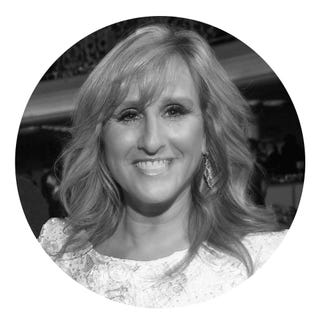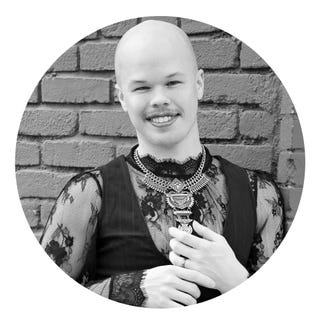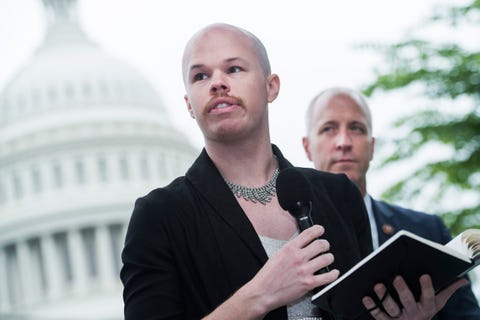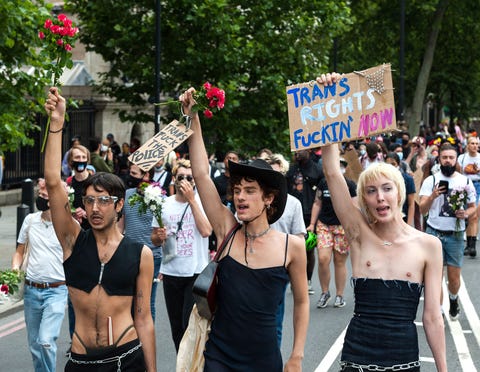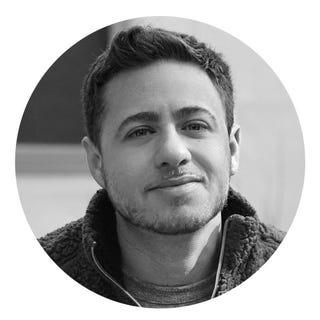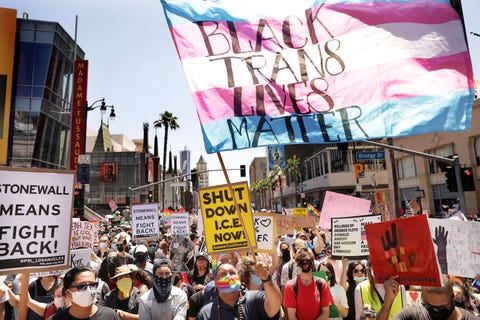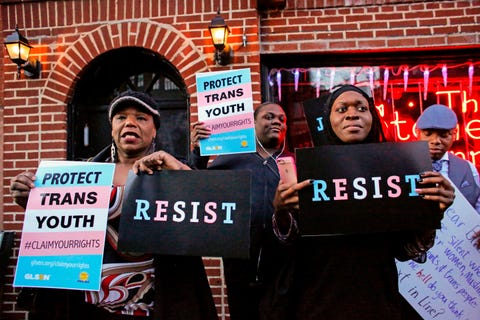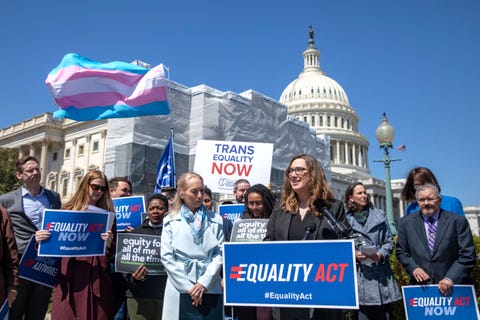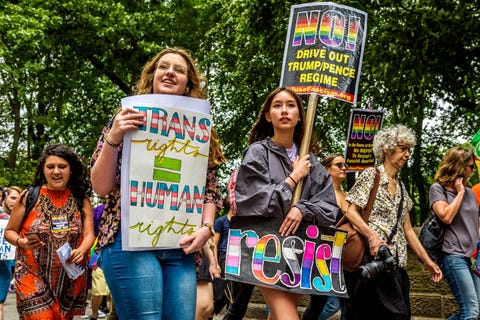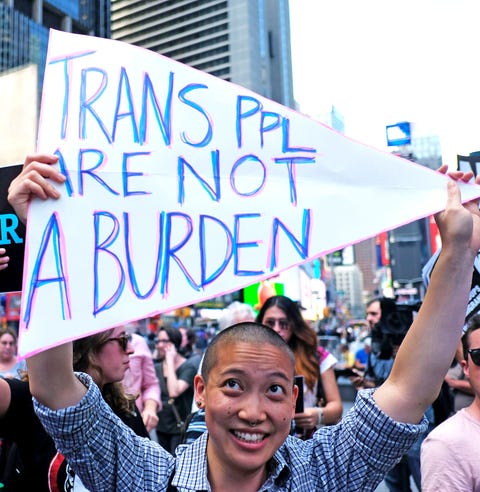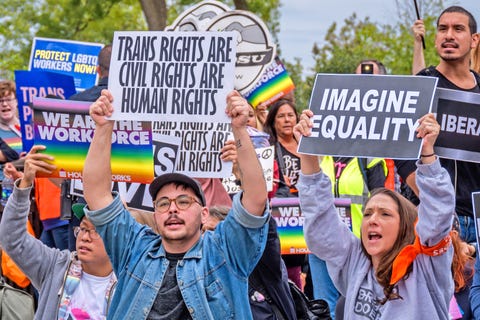Coming into 2021, LGBTQ advocates were bracing for a storm. All the elements were there, a perfect set up for a deluge across the country. But still, the blitz has been staggering.
It only took a few months for 2021 to be declared the worst year in U.S. history for state legislative attacks against the LGBTQ community and a record-breaking year for anti-transgender legislation. By April, state legislatures had introduced more than 100 bills aimed at restricting the rights of transgender people, with most falling into two buckets: bills aimed at blocking transgender young people from playing on sports teams consistent with their gender identity, usually under the argument of keeping women’s sports fair, and bills aimed at blocking transgender youth from receiving gender-affirming medical care.
On March 25, Arkansas’ governor signed a transgender sports ban into law, and on April 6, it became the first state to pass a ban on gender-affirming medical treatment for transgender youth. A Texas bill proposed making it a felony for parents to provide access to such care, while a bill in Alabama proposed the same for medical professionals. A new law in Tennessee now allows parents to opt their kids out of learning LGBTQ-related curriculum. And this all came at a particularly difficult time: According to The Trevor Project’s 2021 National Survey, more than 80 percent of LGBTQ youth reported that COVID-19 made their living situations more stressful and 94 percent reported that recent politics had negatively impacted their mental health.
So far, President Biden has been steadfast in his support, positioning himself as an ally to the LGBTQ community. When he delivered his first joint address to Congress this spring, he said, “To all transgender Americans watching at home, especially the young people, you’re so brave. I want you to know your president has your back.” He signed an executive order combatting anti-LGBTQ discrimination, reversed a Trump-era policy limiting protections for transgender people in healthcare, and is set to confront states on the recent spate of anti-transgender bills.
But even with a committed leader at the top, having anti-transgender messages emanating from the states can be damaging to an already vulnerable population. Even when bills die in committee, “the conversations themselves are causing serious harm to trans youth who are watching their governments debate their existence in deeply disturbing ways,” says Chase Strangio, the deputy director for transgender justice at ACLU.
So how exactly did we, as a country, arrive here—and where do we go next? To answer these questions, ELLE brought together 11 experts and activists for a roundtable discussion on the state of anti-transgender legislation in 2021. Below, you’ll hear from people like Andraya Yearwood, a college student who was at the center of a now-dismissed lawsuit over an attempt to ban her from competing on her high school track team. (Her story is featured in Changing the Game, a documentary focusing on transgender teen athletes, now on Hulu.) You’ll hear from Layshia Clarendon, the first openly transgender and non-binary player in the WNBA, and from Dr. Rachel Levine, the first openly transgender federal official to be confirmed by the Senate. Their perspectives are different, but the conclusion is the same: This is everyone’s fight, and it can’t be won alone.
‘An Organized Campaign’:
Why State Legislatures Started Attacking Transgender Youth
Chase Strangio, ACLU’s Deputy Director for Transgender Justice
“The origin of this moment really began when the Supreme Court struck down bans on marriage equality in 2015. What immediately followed was a robust set of attacks on trans people leading to the proliferation of anti-trans bathroom bills in state legislatures in 2016. That became the focus of the anti-LGBTQ movement. But they lost in a number of ways: The only bathroom bill that passed was HB2 in North Carolina, which led to massive backlash and ultimately was repealed. So they shifted tactics. Instead of saying, ‘We’ve lost this fight,’ they moved to, ‘We’re going to escalate this fight.’”
Mary Emily O’Hara, Rapid Response Manager at GLAAD
“These pieces of legislation don’t come out of nowhere. They almost always trace back to the same handful of anti-LGBTQ activist groups, like Alliance Defending Freedom, Family Policy Alliance, and Heritage Foundation. This year they all came together for the first time in the Promise to America’s Children coalition, and they’ve pulled other groups and a number of state legislators in. It’s important to see it in context and know it’s not happening in a vacuum. This is an organized campaign.”
Chase Strangio, ACLU’s Deputy Director for Transgender Justice
“In 2019, we started to see the emergence of this anti-trans discourse fixated on both sports and healthcare. It was a new version of the same narrative that it’s harmful to be trans. In 2020, the first model bills of this type started to be introduced, but then COVID hit and lots of state legislatures adjourned early. We knew 2021 was going to be an awful session because not only was it building on the momentum of 2020, there were three key things that made it worse: 1. The backlash to the election of President Biden. 2. The response to the Bostock decision, a major Supreme Court win for LGBTQ people, specifically trans people. 3. The consequence of the 2020 election is that there’s tons of investment in the congressional and presidential races and less in the down-ballot races, so you have state legislatures and state executives getting more conservative. It becomes this perfect storm—politically, ideologically, and structurally—for escalating this attack on trans young people. That’s what we’re contending with right now.”
Alphonso David, President of the Human Rights Campaign
“The first argument is that transgender youth should not play in sports consistent with their gender identity. They adopted an us vs. them philosophy in order to mobilize their base: ‘If you allow them to participate in sports, you lose something.’ The problem is transgender youth have been playing in sports consistent with their gender identity for years, and there’s been no problem. When elected officials who are advancing these bills are asked to identify instances where transgender athletes have obtained some competitive advantage, they are unable to identify any cases in their states.”
Mary Emily O’Hara, Rapid Response Manager at GLAAD
“The people passing these bills may not even realize that, in doing so, they’re likely going to create the very problem they’re trying to avoid. If you force trans kids to play sports based on their sex assigned at birth, then you will have boys being forced to play on girls’ teams. The legislators writing these bills have such a vast misunderstanding of what it means to be trans that they don’t know they’re doing the opposite of what they actually want.”
Layshia Clarendon, professional basketball player and former WNBA all-star
“The basis of a lot of these arguments is: ‘We have to protect women’s sports.’ If cis women get on board with that, it’s a slippery slope. There’s a history of women’s bodies being policed in sports, everything from having to physically show your anatomy to not even being able to play full-court basketball because they thought women would fatigue. ‘We should do this to protect women’ is the same kind of rhetoric as what’s been used against women for all of history.”
Alphonso David, President of the Human Rights Campaign
“The second argument relates to the medical bills. They’re claiming they’re seeking to protect transgender youth by refusing to allow them to receive medical care. The problem is the entire medical community disagrees. These elected officials either don’t know or are ignoring the fact that by refusing to allow transgender youth to receive medical care, they’re directly exacerbating a problem, which is transgender youth attempt suicide at a rate of four times that of their cisgender peers. They suffer higher rates of depression and anxiety. If they’re not able to receive the medical care they deserve, these legislators are effectively denouncing and erasing transgender people.”
Dr. Rachel Levine, Assistant Secretary for Health for the U.S. Department of Health and Human Services
“Transgender youth need our support. They don’t need legislation that limits their ability to play sports or receive medical care. That’s very difficult—in fact, I would use the word draconian. There are well-established standards of care for the treatment of transgender individuals established by the World Professional Association for Transgender Health. There’s robust literature and evidence-based standards of care we should follow. I don’t think legislatures and governors should stand in the way between doctors and youth and their families.”
Raquel Willis, writer and activist
“The beauty of this time is we have more language and tools to understand our identities as trans people. I’m always in awe of younger folks who get to know themselves a bit sooner than maybe folks in my generation. But that means they are now a target. The problem with visibility is often people perceive you as a different kind of threat. This anti-trans legislation trend is right alongside the ongoing epidemic of violence against largely Black and brown trans women. This legislation is built on this idea that trans people are predatory, that we’re preying on children, that there’s an agenda to indoctrinate youth to see themselves as trans, but that’s not the case at all. It’s no mistake that so much of this legislation targets trans women and trans girls because it’s often easy to paint us as predators given the very warped narrative about us in media and in society. In this time where misinformation continues to reign supreme for a lot of folks, it’s a ripe landscape for pushing this anti-trans agenda.”
‘It’s Life-Threatening’:
The Dangerous Effects of Anti-Transgender Legislation
Andraya Yearwood, activist and athlete featured in Changing the Game
“I played a lot of sports when I was younger: football, dance, soccer, swimming. Then I fell in love with track. Running gave me a sense of freedom and camaraderie. I remember when I did my first newspaper interview, I asked my dad, ‘Why am I doing this? What’s the point?’ He told me it was good to get my story and my perspective out before anyone else had the chance to do so. I still didn’t think it was that big of a deal—all I wanted to do was run—until the conversation got a lot bigger. Then I realized it was a pretty big deal and how many other trans individuals may be going through the same thing.”
Jazz Jennings, LGBTQ+ activist, television personality, and author
“I was eight years old when I was banned from playing competitive soccer. I was told I had an unfair advantage, and I was going to hurt the other girls, even though I was one of the smallest members on the team. It was absolutely absurd, a pure act of discrimination. They were looking at me as a transgender person and saying I can’t do something simply because of something I can’t control. I was devastated. I joined the boys’ team, specifically one that had another girl, but it was hard for me to connect. I felt isolated, like I didn’t belong. It brought back those feelings of, Who am I? It messed with my identity.”
Jeanette Jennings, President of the TransKids Purple Rainbow Foundation
“When [my daughter] Jazz played on the boys’ team, she would sometimes freeze up on the field and start crying. The coach was lovely. He said, ‘Jazz is such a good player. I’ll do anything to keep her on the team.’ But she couldn’t do it anymore. I’ve had this overpowering feeling of helplessness and some rage. My daughter deserves to be treated like everybody else. As a parent it was traumatizing; I can only imagine what it was like for Jazz.”
Jazz Jennings, LGBTQ+ activist, television personality, and author
“At 11 years old, I went on hormone blockers, and it was lifesaving. I was able to pause puberty and then start hormone replacement therapy. Being able to have that care allowed me to transition and go through puberty at the same time as my peers. The fact that these states are trying to take away those rights for transgender youth, it’s life-threatening for these kids.”
Andraya Yearwood, activist and athlete featured in Changing the Game
“When I first heard about the lawsuit [attempting to block me from the track team], it was a shock. A plaintiff in the lawsuit is someone I would’ve considered a friend. To see she was involved in hindering me from running, when a few months ago we were congratulating each other on an event, was shocking to me. I was also just tired. I’d gone through so much all throughout high school, and to find out there was another thing happening, I was over it. My athletic director told me about the lawsuit on the morning of a state meet, and later I false-started in my event. I don’t like to admit it got to me, but I think it did.”
Sam Brinton, Vice President of Advocacy and Government Affairs at The Trevor Project
“Coming out takes so much bravery, and it’s not right for everyone at all times. There are so many trans young people who are being told the state is debating your existence, your rights, your opportunities. That’s not a great way to have them ever be driven to look for support. I remember the closet door around the closet door that politics creates.”
Raquel Willis, writer and activist
“It’s made me think of my teenage self and how I was longing for community and longing for understanding. I didn’t find much of that until I was an adult. I sometimes wonder, Who would I have been if I had the support then that I have now? If the adults in my life had access to this information about identity and gender and the beauty and uniqueness of all of us?”
Chase Strangio, ACLU’s Deputy Director for Transgender Justice
“I love being trans, I love connecting with trans people, and I feel humbled every single day I get to do this work and get paid to do it. On the flip side, it has been truly grueling and exhausting. I don’t know that we can fully even assess the toll it takes on us to be contending over even the notion that it’s legitimate to debate whether we deserve to survive. That’s a painful place to be. But each day I gear up knowing that trans people come from this incredible legacy of trans ancestors who have passed on so many tools for loving who we are, for caring for each other. I feel so grateful I get to live my self-determined, authentic, messy ways, but I hate the notion of trans kids having to fight against so many forces just to claim their truth, when it’s so beautiful they’ve found that at a young age.”
Jeanette Jennings, President of the TransKids Purple Rainbow Foundation
“I have never seen so many states at one time gang up on the trans community, specifically children. When we were fighting our soccer battle, there was far less attention on trans youth. Back then, I was surprised there wasn’t more backlash that I had a transgender child playing sports. I thought, We’ve come a long way. People are okay with this. But it’s taken another decade to find out they’re really not. Now you have grown adults discussing checking children’s private parts to see if they’re eligible to play in a sport. Politicians don’t see my little eight-year-old who was sitting on the bench because she wasn’t allowed to play with her friends. With them, it comes down to chromosomes and birth certificates.”
Alex Schmider, producer of Changing the Game
“As a trans person, when I was approached to produce Changing the Game, I had a lot of discomfort about trans inclusion in sports. There were things from the media that I needed to unlearn. I did a lot of my own personal interrogation of, Why do we feel the way we do about certain athletes? What many people aren’t thinking about is that, in targeting trans youth, what they’re really doing is targeting anyone who doesn’t perfectly conform to gender expectations. What we’re really talking about here is self-determination, self-definition, self-autonomy, and the policing that happens around anyone who doesn’t perfectly fit into white, Eurocentric expectations.
This is part of a long history of girl and women athletes having their bodies policed, specifically if you’re Black or brown, and the historic sex testing that happens in girls’ and women’s sports. We need to question why we celebrate Michael Phelps and his swimming mastery without acknowledging that he has a physiological advantage; he produces less lactic acid in his body, and we celebrate that as a culture. Whereas athletes like Caster Semanya or Serena Williams have their bodies policed. People say they’re not feminine enough, or their physiological makeup doesn’t perfectly fit into what we believe to be properly woman enough.”
This content is imported from YouTube. You may be able to find the same content in another format, or you may be able to find more information, at their web site.
Chase Strangio, ACLU’s Deputy Director for Transgender Justice
“As someone who grew up playing girls’ sports, it was always true that anyone who was really good, who had short hair, or who was seen as too muscular, was called a boy. Now every time that impulse enters the discourse, whether it’s from parents on an opposing team, whether it’s from coaches, whether it’s from competitors, now there’s a state-created mechanism to police and scrutinize that person’s body.”
Raquel Willis, writer and activist
“Maybe initially it looks like this is just about transgender people, but really it’s about all of us. We’re all in the crossfire of being policed around our bodies and our gender. When I think about the voter suppression conversation that largely targets Black and brown people, it is about policing our right to vote and make decisions in society. When I think about the fights against reproductive justice and access, that is about policing the bodies of people who can get pregnant. They need certain services that don’t often fall in line with the conservative agenda. The same thing is happening with trans people.”
Sam Brinton, Vice President of Advocacy and Government Affairs at The Trevor Project
“This has been a year unlike any other. Regardless of the political attacks, the Trevor Project is currently serving, at times, more than twice our normal volume of crisis contacts because of the pandemic. There’s no pressure relief valve. There’s no way for us to communally talk about what we’re going through. [Trans youth] don’t have that coach you can talk to after practice or that teacher you can eat lunch with. That one supportive person can reduce suicidal ideation by 40 percent. There’s a lack of social support.”
Layshia Clarendon, professional basketball player and former WNBA all-star
“Even if a bill doesn’t directly affect a person in terms of policy, it affects all of us because it’s in the national conversation. It’s like anti-racist sentiments. You know the way people view Black people and policing, all the stereotypes that Black people have to deal with. That’s the stuff that’s hard to measure. It’s not a policy, but it’s cultural. It’s in the air. It’s everywhere.”
Alex Schmider, producer of Changing the Game
“Even the bills that aren’t passing, the ones that are just being introduced and discussed, send messages to young trans people that they don’t belong. That sports aren’t for them. That their school environments aren’t for them. That they can’t pursue what they love. That they can’t be who they are.”
‘We All Have a Role to Play’:
What Must Happen Next in the Fight for Transgender Equity
Sam Brinton, Vice President of Advocacy and Government Affairs at The Trevor Project
“I remind folks that while we may be facing this current political wave, trans women of color were at Stonewall. We have been doing this for decades. What gives me a little bit of hope is that my trans ancestors have fought these fights before. We have won in the past. There will always be discrimination coming toward us, and our job is just to hold the barricade, to make sure we don’t give ground and keep protecting our own.”
Raquel Willis, writer and activist
“What we do this year in these legislative sessions is a testing ground for what we can do as we continue this fight. I don’t believe these attacks on the trans community will go away anytime soon. In some ways, this is just the beginning. We can continue to organize on the state level and continue to push for federal protections like the Equality Act. We also have to be talking about the ways that trans people are impacted by voter suppression laws, particularly around IDs. We have to be talking about expanding access to housing and education. When we’re talking about platforms of universal healthcare, about student loan debt reduction, all of that is part of the fight for trans equality because we need those things too.”
Mary Emily O’Hara, Rapid Response Manager at GLAAD
“Start with your state’s Equality Federation chapter or Human Rights Campaign chapter, whatever your state’s LGBTQ advocacy group is. They are most likely the first line of defense against local legislation. Go to the local hearings. Find out when the bill is going to be debated in your state House or Senate. Go and speak out against it. Contact local representatives and tell them you think this is wrong. Ask your LGBTQ friends and family what they need in terms of support. The great thing about living in 2021 is your social media is media too. You can post information and help people understand what they’re missing here.”
Raquel Willis, writer and activist
“Follow, elevate, and pay attention to the voices of trans people who are speaking up on these issues with the caveat that not every trans person is an activist or advocate or organizer. Figure out ways you can tangibly show up for trans leaders and trans-led organizations. Deepen a commitment to breaking down the gender binary. When you make that commitment, then you’ll start to figure out the connections to your life. What spaces are you part of where you can be correcting misinformation about our community? You should be showing up for trans and non-binary folks at all times, not just when we can see you.”
Alphonso David, President of the Human Rights Campaign
“We all have to be comfortable having uncomfortable conversations. Engage with that member of your family who may be operating on misinformation or disinformation, and provide them with the facts. We all have to be actively invested in doing that in our families, in our communities, at our jobs, with our friends to make sure they understand how this fight is directly related to their quest for liberation. I cannot be free as a Black man if I’m not free as a gay man. I cannot be free as a gay man if I’m not free as a Black man. I cannot achieve equality as a gay man or a Black man if members of the white community, members of the non-LGBTQ community, don’t see me as a human being.”
Andraya Yearwood, activist and athlete featured in Changing the Game
“A big part of this is education—educating yourself on who trans people are, our history, and our culture. Once you’ve done that, spread that education to your friends, family, peers. Don’t be afraid to ask questions.”
Layshia Clarendon, professional basketball player and former WNBA all-star
“It reminds me so much of 2016 with the way Donald Trump put racism all in our faces. A lot of white people were like, ‘Oh my god, racism!’ and Black people and people of color were like, ‘This is nothing new.’ In that same way, I feel like cis people are having their awakening, like, ‘Why would they try and stop someone from having healthcare?’ Maybe because they don’t want us to exist and have basic rights. My hope is that cis people realize how much they’ve been benefiting from the privilege of moving through this world not having to thinking about their gender identity or what bathroom they use or what pronoun they use or changing their name or going to the doctor. I hope it shocks them into waking up and realizing this is a fight they need to pick up too.”
Dr. Rachel Levine, Assistant Secretary for Health for the U.S. Department of Health and Human Services
“Unfortunately, this issue of equality has been politicized. It’s being weaponized to the detriment of transgender youth. We need to get past that. We need to look at this as the human rights issue it is. I strongly feel we haven’t made real progress until we’ve all made progress. LGBTQ immigrants are vulnerable, LGBTQ seniors, transgender individuals of color are at risk of not only bullying and harassment, but violence and murder. We all have to work toward protecting and advocating for the most vulnerable in our community.”
Sam Brinton, Vice President of Advocacy and Government Affairs at The Trevor Project
“This is happening across state lines and from coast to coast. We have our work cut out for us. But as governors are vetoing some of these bad laws, we can celebrate that one good choice. These vetoes create one less night of nightmares. They’re one little instance of safety. It may not last forever, it may be overridden, but it’s giving us one chance to breathe a little bit easier. When you get that moment of rest, take it. Do not feel like you have to immediately go back into the fight, because as an LGBTQ young person, you shouldn’t have to be fighting this in the first place.”
Alex Schmider, producer of Changing the Game
“I hope people start getting good with themselves. I think when people get comfortable with who they are, they will not see other people being who they are as threats to their existence. This legislation is so charged, but it isn’t rooted in seeing people as humans anymore. For anyone who does consider themselves an ally of the trans community, it is incumbent on you to have these dialogues and not cancel people. We need allies doing the work of educating so trans people don’t always have to. We, as a community, can’t do this alone. We need coalitions of people who support us and love us. If you want to be an ally, bring people in.”
Jazz Jennings, LGBTQ+ activist, television personality, and author
“For every single act of hatred, there’s an even greater act of love and positivity and light. There are so many people working on our side, on the right side of history, to make change and make things happen, to create an equal world. We’re all fighting for an equal society. We’re fighting for acceptance from cisgender people, so it’s up to their allyship, and we need their acceptance and support. We need them to see us as equal people in order for this world to be a better place.”
Chase Strangio, ACLU’s Deputy Director for Transgender Justice
“We need to invest resources into the trans communities that have been decimated in so many ways before this but continue to survive and thrive. That means funneling resources into state trans-led groups that are going to have to keep the trans community alive under incredibly perilous circumstances. That means building out material redistribution for trans people who have already faced so much systemic discrimination and cycles of poverty. There’s so much work to do to keep trans communities of all ages alive and thriving, and that doesn’t just look like passing laws or winning court cases. That’s about investing resources and ending acts of violence. That can only be done if we change the way we allow the government to police our bodies, the way that we enforce the sex binary, and the way that we legitimize a discourse over trans lives. Fundamentally, we need people to break down the myths that animate these conversations. The myth that trans kids shouldn’t get to be who they are. The myth that trans girls shouldn’t get to play sports. The myth that it’s harmful to be trans. We all have a role to play in changing those assumptions.”
These interviews have been edited and condensed for clarity.
If you or someone you know needs help or support, The Trevor Project’s trained crisis counselors are available 24/7 at 1-866-488-7386 via chat at TheTrevorProject.org/Help or by texting 678-678.
